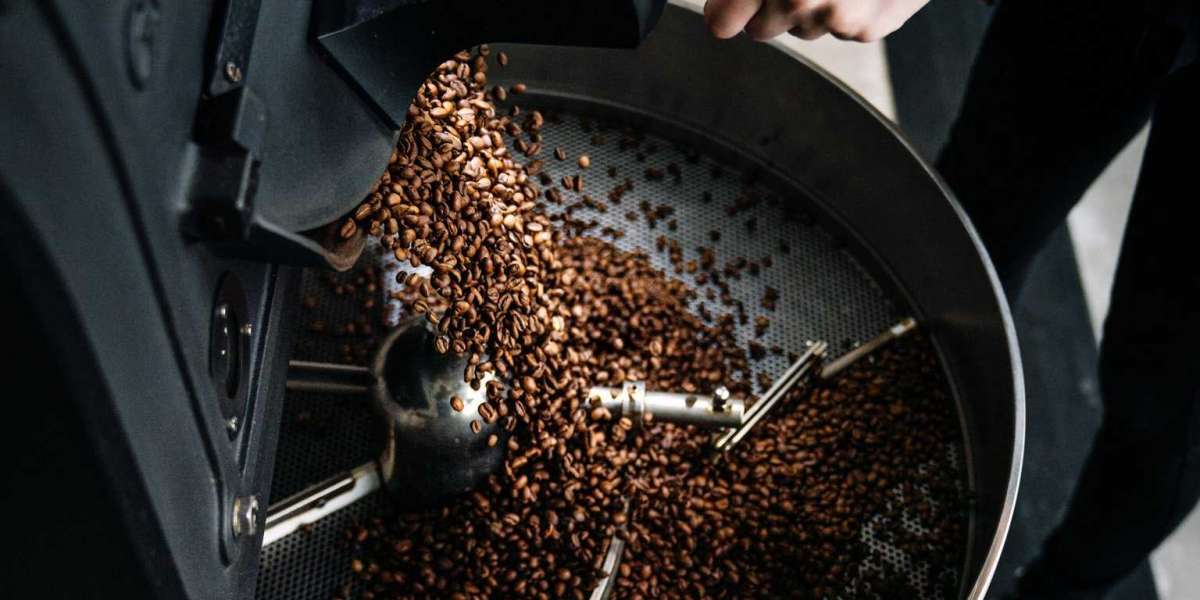Do you want to start a coffee roasting business? Or perhaps you've already begun and are looking for the ideal roastery equipment? Continue reading if you are unsure whether a sample coffee roaster is a worthwhile investment.
YOU REQUIRE A SAMPLE ROASTER FOR YOUR COFFEE BUSINESS
1. QUALITY CONTROL
Control the quality of your coffee.
When the green coffee arrives at your roastery, you store it and schedule it for your roasting menu. It could take weeks or months before you start roasting it. Even if stored in optimum circumstances, coffee's flavor characteristics change over time. As a result, it is critical to monitor the quality on a frequent basis. Sample roasting aids in the prevention of potential flaws or problems in the coffee.
The next stage is to taste the coffee samples after they have been roasted. After the roasting is finished, you can prepare a cupping. Cupping offers critical feedback on coffee quality and roasting profile.
2. PRODUCTION
Unlock the true potential of your coffee.
Sample roasting helps to learn how the coffee reacts to the chosen roasting profile and what modifications are required on the road to the desired cup. Even modest changes in development time or charging temperature can have a huge impact on flavor. Roasting a small amount of coffee beans is ideal for perfecting and emphasizing specific features before roasting 10kg of them on a commercial roaster.
Before head roasters put new coffee up for production roasting, they sample roast a small amount to determine the potential of the green beans. With its hybrid drum roasting, the ROEST sample roaster offers a comparable roasting experience. As a result, it is easier to manufacture beans that are similar to the taste of a production roaster.
"ROEST combines all of the features we were looking for in a sample roaster, such as replicable roasts, data logging, very accessible handling, and now the first crack detector," explains Olli, head roaster at @Flying_roasters.
3. PURCHASE OF GREEN COFFEE
Your most important decisions depend on it.
Sample roasting is a crucial aspect of quality control that roasteries frequently overlook. A small green coffee sample influences your decision to purchase a half-container of Brazilian coffee for your next espresso roast. That is a major judgment based on a small sample of roasted coffee.
While importers may offer you roasted samples to evaluate the potential of the green coffee you are considering purchasing, it is always preferable to roast it yourself. Kenji from @fuglencoffee_tokyo, a head roaster and green coffee buyer, says, "When I buy green coffee, I want to roast and cup with my own roast point: not too dark nor too light."
Pawel, owner of @kawiarniabezcukru: "A sample roaster is a "must have" for every high-quality specialty roastery. It allows us to understand the potential of the coffee we want to order. I believe Roest performed admirably on the exam."
Many coffee importers sample roast their coffee using similar equipment and are ready to share their characteristics with you. It's useful for inspiration, but make sure to tailor it to your preferences. Create your own roasting profile library for different origins or processing processes.
4. PRACTICE
The Best Way to Learn Coffee Roasting
Before you invest a lot of money in the coffee business, get to know your product better. The best way to learn how to roast coffee is to start with a sample roaster. Roasting modest amounts of coffee provides a larger sandbox for experimenting with various roasting settings. Changing one parameter at a time allows you to comprehend the consequences of the change. Smart-technology sample roasters are simple to use and don't require a lot of coffee roasting experience at first. The more you roast and cup, the more you learn.
"There are plans to open a coffee roastery in the future," says Pawel. As the roasting procedure is similar to that of a commercial coffee roaster, I decided to purchase the Roest ahead of time. This is how I learned to roast coffee. Working with Roest is really intuitive and enjoyable! "I am confident that the knowledge and experience gained while working with Roest will be reflected in the future."
Many home roasters pick the ROEST sample roaster to learn how to roast coffee. It is simple to use; it offers automatic roasting so you can begin observing and tasting, as well as manual roasting to help you enhance your skills. If you want to know more information about sample roasters, Click here .
5. SHARE YOUR SKILLS
A Way to Teach About Coffee
Roasting using a sample roaster enhances more than simply your coffee expertise. You can organize a short workshop and share your knowledge with others. "It's good when you teach about coffee to your baristas and customers so they can experience the difference from roasting," adds Kenji.
Many roasters and coffee consultants use sample roasters for roasting training. Tim Wendelboe organizes roasting seminars for professional roasters: "We roast defect roasts on roast." It is a collection of substandard roasts that teach people to distinguish the green or cooked taste of coffee.``



